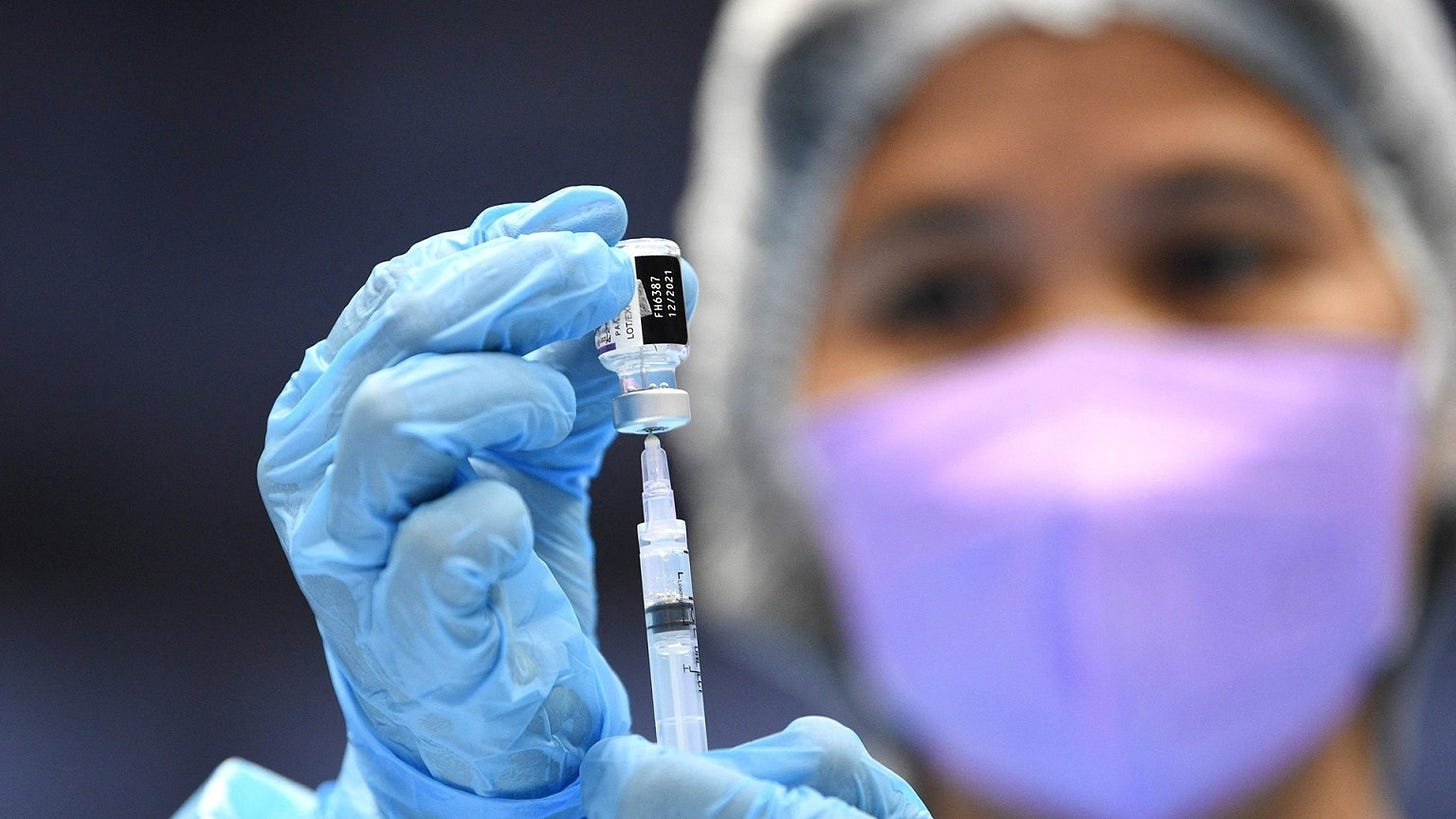The Most Recent Data on Omicron and Vaccines
Research on the most recent wave of COVID-19 caused by the Omicron variant of COVID-19 is underway, and new reports are shedding light on the new variant. Whether or not vaccines are safe and effective against Omicron is top of mind for health agencies and populations around the world. The data are mixed, there are a number of red flags, and no rigorous studies with control groups are planned or underway.
The largest private health insurance agency in South Africa, Discovery Health, released a report on patients infected with Omicron. The data from Discovery Health suggest that the current vaccines do not provide as much protection against Omicron as they did for Delta; however, data on the Pfizer vaccine suggest that vaccination does still protect against severe symptoms requiring hospitalization.
Although this report is promising, the most recent technical briefing from the UK Health Security Agency (UKHSA) said that it was too early to tell whether the vaccines protect against hospitalization. Both studies agree that Omicron appears to cause less severe disease with fewer hospitalizations overall, but current vaccines are less protective against Omicron than previous variants.
The UKHSA compared vaccine efficacy against Omicron before and after boosters and all boosters demonstrated greater efficacy than just the initial one or two doses of vaccine. However, even with boosters, the vaccines were still less protective against Omicron than Delta. In addition to the preliminary data from UKHSA on vaccine efficacy, a research preprint from The University of Edinburgh demonstrated that vaccine boosters significantly increase protection against Omicron, though not to the extent of protection against Delta.
The Imperial College of London conducted their own study, demonstrating decreased risks for hospitalization with Omicron infection, corroborating the other reports. Moreover, preliminary data from Norway supports that Omicron is more transmissible and that vaccinations are less effective at preventing Omicron than previous variants.
In addition to observing decreased vaccine efficacy against Omicron, Discovery Health also measured increased transmission rates of Omicron compared to previous variants. Although the Omicron variant seems to cause less severe disease, the UKSHA warns that due to its high levels of infectivity, Omicron has the potential to lead to incredibly high hospital burdens because of the sheer number of people who are likely to become infected.
In addition to decreased vaccine efficacy against Omicron, Discovery Health observed that previous infection with a COVID-19 variant was less protective against infection with Omicron than other variants. The UKSHA also noted a sharp increase of COVID-19 reinfections after Omicron began to spread in the UK.
Perhaps most concerning is a preprint study out of Denmark purporting to show that recent full Pfizer or Moderna vaccination and/or booster shots provide enhanced immunity for about 30 days before immunity rapidly declines to zero at around 60 days and then seemingly becomes negative by the 90-day mark, meaning patients were more likely to get Omicron after 90 days than if they were unvaccinated. If this research is borne out and confirmed by other trials we could see public health agencies recommending additional boosters with each new wave of the virus.
Real-world surveillance data gathered by independent researchers around the world raises serious concerns around the overall safety of vaccination. Steve Kirsch claims that VAERS data may indicate more than 150,000 deaths in the US alone attributable to vaccines, and many hundreds of thousands if not millions of serious adverse events. Matthew Crawford has shown with data from 191 countries around the world that in every nation that vaccinates, without exception, cases and deaths rise as vaccine programs ramp up. Dr. Ryan Cole, a pathologist reported a 20x increase in endometrial cancers (i.e. of the uterus) post-vaccination. German pathologist Peter Schirmacher reported that a conservative 30-40% of deaths following vaccination were due to the vaccine. Dr. Burkhardt presented evidence at a Pathology conference linking the death to vaccines in at least 40% of cases. Drs Bhakdi and Burkhardt reported a case series of 15 deaths post-vaccination, in which a thorough autopsy strongly implicated autoimmune attack due to vaccination as the cause of death in 14 of 15 cases. Pfizer's own post-vaccine safety report, released via a FOIA request, shows a death rate of 430 per million injections, which coincides with multiple independent estimates. There is evidence suggesting that the Pfizer vaccine deleteriously reprograms the adaptive and innate immune responses. These and many more red flags deserve to be addressed rather than suppressed by health officials in every country in order to allay the fears they naturally engender.
Overall, the most recent data support that the Omicron variant of COVID-19 causes less severe disease with decreased risk of hospitalization after infection. While all studies reviewed demonstrated that current vaccines are less protective against Omicron than other variants, preliminary data suggest that severe disease and hospitalization may be prevented by recent COVID-19 vaccination and boosters - though this efficacy appears to wane rapidly and even flip negative at 90 days. Many concerned individuals balk at vaccination due to what has been widely labeled misinformation regarding risks of serious side effects and death. Until health authorities rigorously evaluate and respond to the many allegations it is hard to imagine that most of the hesitant will change their minds unless forced.
Public health organizations around the world strongly recommend vaccination or boosters immediately for all adults and continue to repeat the now-familiar refrain that vaccines are “safe and effective”.


